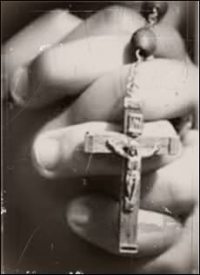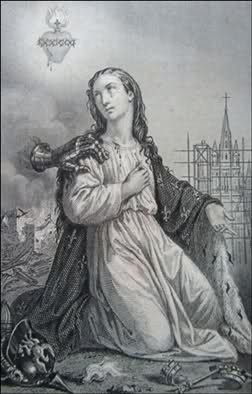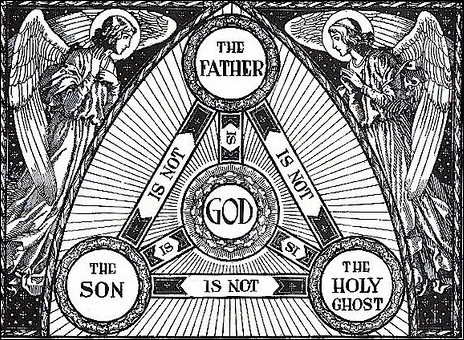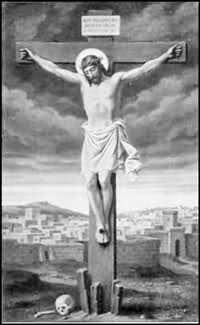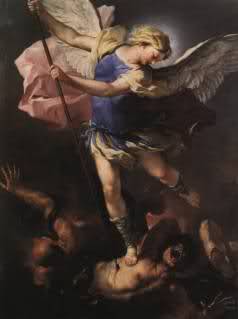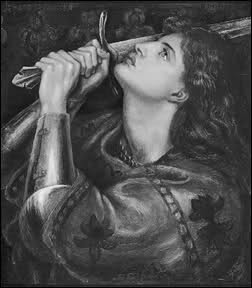
Feast Day January 25
THIS great apostle was a Jew, of the tribe of Benjamin. At his circumcision, on the eighth day after his birth, he received the name of Saul. His father was by sect a Pharisee, and a denizen of Tarsus, the capital of Cilicia: which city had shown a particular regard for the cause of the Cæsars; on which account Cassius deprived it of its privileges and lands; but Augustus, when conqueror, made it ample amends by honoring it with many new privileges, and with the freedom of Rome, as we read in the two Dions and Appian.
Hence St. Paul, being born at Tarsus, was by privilege a Roman citizen, to which quality a great distinction and several exemptions were granted by the laws of the empire. His parents sent him young to Jerusalem, where he was educated and instructed in the strictest observance of the law of Moses, by Gamaliel, a learned and noble Jew, and probably a member of the Sanhedrim; and was a most scrupulous observer of it in every point.
He appeals even to his enemies to bear evidence how conformable to it his life had been in every respect. He embraced the sect of the Pharisees, which was of all others the most severe, though by its pride the most opposite to the humility of the gospel. It was a rule among the Jews that all their children were to learn some trade with their studies, were it but to avoid idleness, and to exercise the body, as well as the mind, in something serious. It is therefore probable that Saul learned in his youth the trade which he exercised even after his apostleship, of making tents.
Saul, surpassing all his equals in zeal for the Jewish law and their traditions, which he thought the cause of God, became thereby a, blasphemer, a persecutor, and the most outrageous enemy of Christ. He was one of those who combined to murder St. Stephen, and by keeping the garments of all who stoned that holy martyr, he is said by St. Austin to have stoned him by the hands of all the rest; to whose prayers for his enemies he ascribes the conversion of St. Paul:” If Stephen,” said he, “had not prayed, the church would never have had St. Paul.”
After the martyrdom of the holy deacon, the priests and magistrates of the Jews raised a violent persecution against the church at Jerusalem, in which Saul signalized himself above others. By virtue of the power he had received from the high priest, he dragged the Christians out of their houses, loaded them with chains, and thrust them into prison. He procured them to be scourged in the synagogues, and endeavored by torments to compel them to blaspheme the name of Christ. And as our Saviour had always been represented by the leading men of the Jews as an enemy to their law, it was no wonder that this rigorous Pharisee fully persuaded himself that he ought to do many things contrary to the name of Jesus of Nazareth.
By the violences he committed, his name became everywhere a terror to the faithful. The persecutors not only raged against their persons, but also seized their estates and what they possessed in common, and left them in such extreme necessity, that the remotest churches afterwards thought it incumbent on them to join in charitable contributions to their relief. All this could not satisfy the fury of Saul; he breathed nothing but threats and the slaughter of the other disciples.
Wherefore, in the fury of his zeal, he applied to the high priest and Sanhedrim for a commission to take up all Jews at Damascus who confessed Jesus Christ, and bring them bound to Jerusalem, that they might serve as public examples for the terror of others. But God was pleased to show forth in him his patience and mercy; and, moved by the prayers of St. Stephen and his other persecuted servants, for their enemies, changed him, in the very heat of his fury, into a vessel of election, and made him a greater man in his church by the grace of the apostleship, than St. Stephen had ever been, and a more illustrious instrument of his glory.
He was almost at the end of his journey to Damascus, when about noon, he and his company were on a sudden surrounded by a great light from heaven, brighter than the sun. They all saw the light, and being struck with amazement, fell to the ground. Then Saul heard a voice, which to him was articulate and distinct; but not understood, though heard by the rest: Saul, Saul, why dost thou persecute me? Christ said not: Why dost thou persecute my disciples? but me: for it is he, their head, who is chiefly persecuted in his servants. Saul answered: Who art thou, Lord? Christ said: Jesus of Nazareth, whom thou persecutest. It is hard for thee to kick against the goad: “to contend with one so much mightier than thyself. By persecuting my church you make it flourish, and only prick and hurt yourself.”
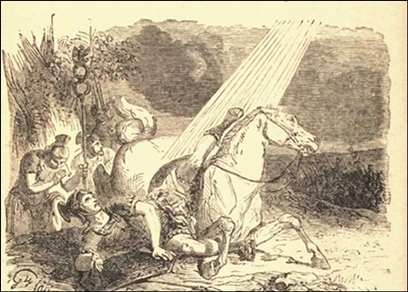
This mild expostulation of our Redeemer, accompanied with a powerful interior grace, strongly affecting his soul, cured his pride, assuaged his rage, and wrought at once a total change in him. Wherefore, trembling and astonished, he cried out: Lord, what wilt thou have me to do? What to repair the past? What to promote your glory? I make a joyful oblation of myself to execute your will in every thing, and to suffer for your sake afflictions, disgraces, persecutions, torments, and every sort of death.
The true convert expressed this, not in a bare form of words, nor with faint languid desires, nor with any exception lurking in the secret recesses of his heart; but with an entire sacrifice of himself, and an heroic victory over the world with its frowns and charms, over the devils with their snares and threats, and over himself and all inclinations of self-love; devoting himself totally to God. A perfect model of a true conversion, the greatest work of almighty grace!
Christ ordered him to arise and proceed on his journey to the city, where he should be informed of what he expected from him. Christ would not instruct him immediately by himself, but, St. Austin observes, sent him to the ministry which he had established in the church, to be directed in the way of salvation by those whom he had appointed for that purpose. He would not finish the conversion and instruction of this great apostle, whom he was pleased to call in so wonderful a manner, but by remitting him to the guidance of his ministers; showing us thereby that his holy providence has so ordered it, that all who desire to serve him, should seek his will by listening to those whom he has commanded us to hear, and whom he has sent in his own name and appointed to be our guides.
So perfectly would he abolish in his servants all self-confidence and presumption, the source of error and illusion.
The convert, rising from the ground, found that, though his eyes were open, he saw nothing. Providence sent this corporal blindness to be an emblem of the spiritual blindness in which he had lived, and to signify to him that he was henceforward to die to the world, and learn to apply his mind totally to the contemplation of heavenly things. He was led by the hand into Damascus, whither Christ seemed to conduct him in triumph.
He was lodged in the house of a Jew named Judas, where he remained three days blind, and without eating or drinking. He doubtless spent his time in great bitterness of soul, not yet knowing what God required of him. With what anguish he bewailed his past blindness and false zeal against the church, we may conjecture both from his taking no nourishment during those three days, and from the manner in which he ever after remembered and spoke of his having been a blasphemer and a persecutor.
Though the entire reformation of his heart was not gradual, as in ordinary conversions, but miraculous in the order of grace, and perfect in a moment; yet a time of probation and a severe interior trial (for such we cannot doubt but he went through on this occasion) was necessary to crucify the old man and all other earthly sentiments in his heart, and to prepare it to receive the extraordinary graces which God designed him.
There was a Christian of distinction in Damascus, much respected by the Jews for his irreproachable life and great virtue; his name was Ananias. Christ appeared to this holy disciple; and commanded him to go to Saul, who was then in the house of Judas at prayer: Ananias trembled at the name of Saul, being no stranger to the mischief he had done in Jerusalem, or to the errand on which he was set out to Damascus. But our Redeemer overruled his fears, and charged him a second time to go to him, saying: Go, for he is a vessel of election to carry my name before Gentiles and kings, and the children of Israel: and I will show him how much he has to suffer for my name. For tribulation is the test and portion of all the true servants of Christ. Saul in the mean time saw in a vision a man entering, and laying his hands upon him, to restore his sight.
Ananias, obeying the divine order, arose, went to Saul, and laying his hands upon him, said: Brother Saul, the Lord Jesus who appeared to thee on thy journey, hath sent me that thou mayest receive thy sight, and be filled with the Holy Ghost.
Immediately something like scales fell from his eyes, and he recovered his eyesight. Ananias added: The God of our fathers hath chosen thee that thou shouldst know his will and see the just one, and shouldst hear the voice from his mouth: and thou shalt be his witness unto all men to publish what thou hast seen and heard. Arise, therefore, be baptized and washed from thy sins, invoking the name of the Lord.
Saul then arose, was baptized and took some refreshment. He stayed some few days with the disciples at Damascus, and began immediately to preach in the synagogues, that Jesus was the Son of God, to the great astonishment of all that heard him, who said: Is not this he who persecuted at Jerusalem those who invoked the name of Jesus, and who is come hither to carry them away prisoners? Thus a blasphemer and a persecutor was made an apostle, and chosen to be one of the principal instruments of God in the conversion of the world. St. Paul never recalled to mind this wonderful conversion, without raptures of gratitude and praise to the divine mercy.
* * * * *
The church, in thanksgiving to God for such a miracle of his grace, from which it has derived such great blessings, and to commemorate so miraculous an instance of his almighty power, and to propose to penitents a perfect model of a true conversion, has instituted this festival, which we find mentioned in several calendars and missals of the eighth and ninth centuries, and which pope Innocent III. commanded to be observed with great solemnity. It was for some time kept a holy day of obligation in most churches in the West; and we read it mentioned as such in England in the council of Oxford in 1222, in the reign of king Henry III.
Source: Pictorial Lives of The Saints
Compiled from “Butler’s Lives” and Other Approved Sources
1887

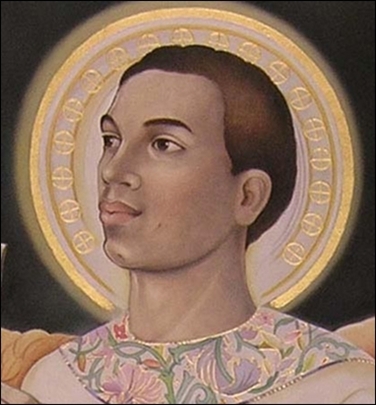
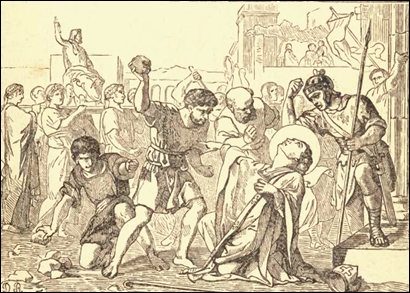
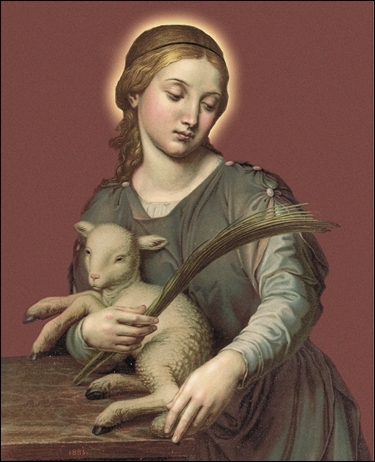
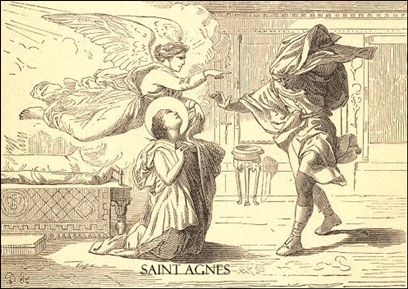 The chief prosecutor of the saint, who at first sought to gratify his lust and avarice, now labored to satiate his revenge, by incensing the judge against her; his passionate fondness being changed into anger and rage. The governor wanted not others to spur him on; for he was highly exasperated to see himself baffled, and set at defiance by one of her tender age and sex. Therefore, resolved upon her death, he condemned her to be beheaded. Agnes, transported with joy on hearing this sentence, and still more at the sight of the executioner, “went to the place of execution more cheerfully,” says St. Ambrose, “than others go to their wedding.” The executioner had secret instructions to use all means to induce her to a compliance: but Agnes always answered she could never offer so great an injury to her heavenly spouse; and having made a short prayer, bowed down her neck to adore God, and receive the stroke of death. The spectators wept to see so beautiful and tender a virgin loaded with fetters, and to behold her fearless under the very sword of the executioner, who with a trembling hand cut off her head at one stroke. Her body was buried at a small distance from Rome, near the Nomentan road. A church was built on the spot in the time of Constantine the Great, and was repaired by pope Honorius in the seventh century. It is now in the hands of Canon-Regulars, standing without the walls of Rome; and is honored with her relics in a very rich silver shrine, the gift of pope Paul V., in whose time they were found in this church, together with those of St. Emerentiana. The other beautiful rich church of St. Agnes within the city, built by pope Innocent X., (the right of patronage being vested in the family of Pamphili,) stands on the place where her chastity was exposed. The feast of St. Agnes is mentioned in all Martyrologies, both of the East and West, though on different days. It was formerly a holyday for the women in England, as appears from the council of Worcester, held in the year 1240. St. Ambrose, St. Austin, and other fathers have wrote her panegyric.
The chief prosecutor of the saint, who at first sought to gratify his lust and avarice, now labored to satiate his revenge, by incensing the judge against her; his passionate fondness being changed into anger and rage. The governor wanted not others to spur him on; for he was highly exasperated to see himself baffled, and set at defiance by one of her tender age and sex. Therefore, resolved upon her death, he condemned her to be beheaded. Agnes, transported with joy on hearing this sentence, and still more at the sight of the executioner, “went to the place of execution more cheerfully,” says St. Ambrose, “than others go to their wedding.” The executioner had secret instructions to use all means to induce her to a compliance: but Agnes always answered she could never offer so great an injury to her heavenly spouse; and having made a short prayer, bowed down her neck to adore God, and receive the stroke of death. The spectators wept to see so beautiful and tender a virgin loaded with fetters, and to behold her fearless under the very sword of the executioner, who with a trembling hand cut off her head at one stroke. Her body was buried at a small distance from Rome, near the Nomentan road. A church was built on the spot in the time of Constantine the Great, and was repaired by pope Honorius in the seventh century. It is now in the hands of Canon-Regulars, standing without the walls of Rome; and is honored with her relics in a very rich silver shrine, the gift of pope Paul V., in whose time they were found in this church, together with those of St. Emerentiana. The other beautiful rich church of St. Agnes within the city, built by pope Innocent X., (the right of patronage being vested in the family of Pamphili,) stands on the place where her chastity was exposed. The feast of St. Agnes is mentioned in all Martyrologies, both of the East and West, though on different days. It was formerly a holyday for the women in England, as appears from the council of Worcester, held in the year 1240. St. Ambrose, St. Austin, and other fathers have wrote her panegyric.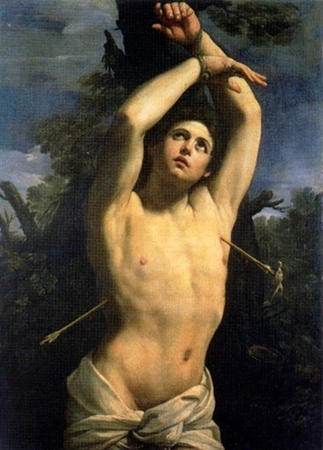
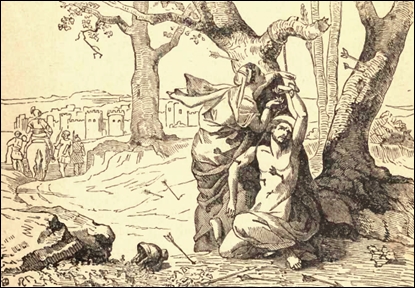
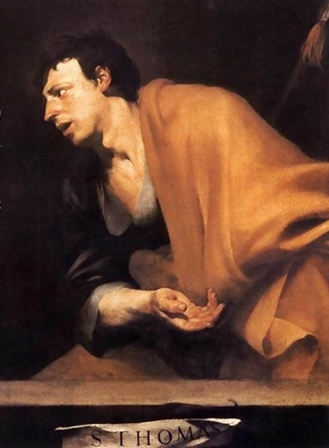
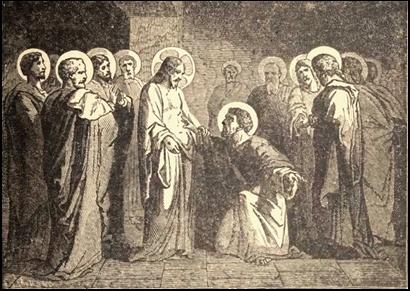
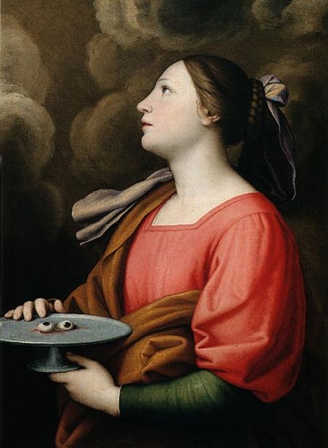
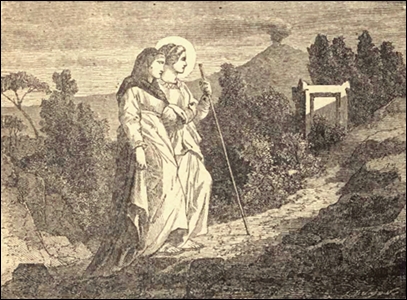

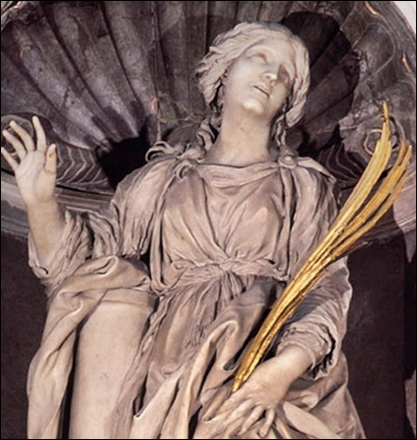
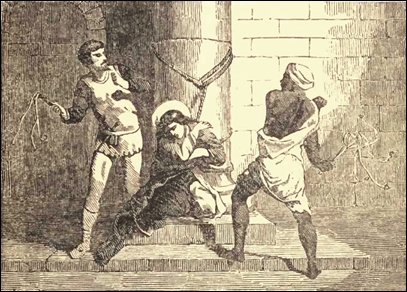
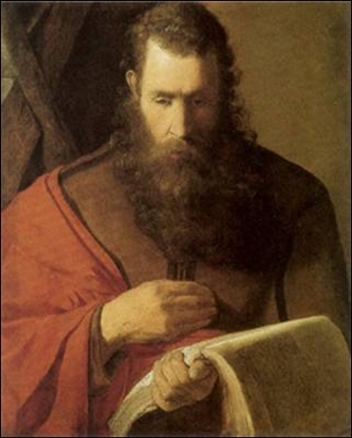
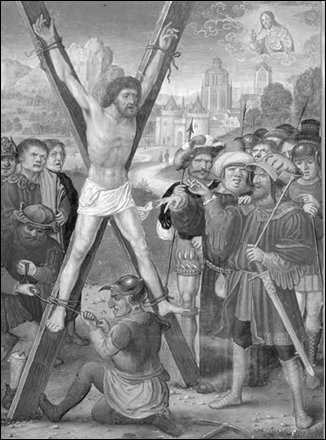

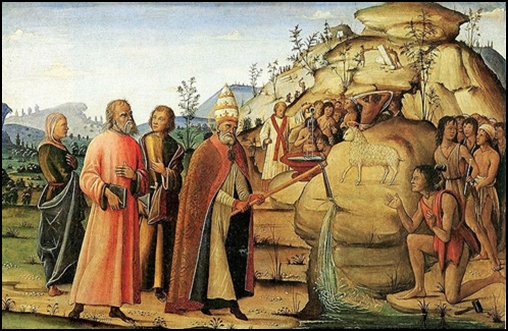 So many heathens were converted on account of this miracle, that, in the course of a year, almost all the idolatrous temples were torn down, and Christian churches erected in their stead. Some of the idolatrous priests complained of this to the Emperor, who immediately sent Aufidian, a cruel tyrant, to force the Christians to forsake their faith, and to put St. Clement to death.
So many heathens were converted on account of this miracle, that, in the course of a year, almost all the idolatrous temples were torn down, and Christian churches erected in their stead. Some of the idolatrous priests complained of this to the Emperor, who immediately sent Aufidian, a cruel tyrant, to force the Christians to forsake their faith, and to put St. Clement to death.